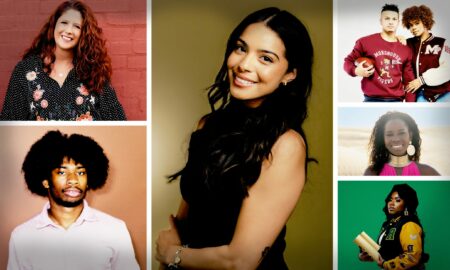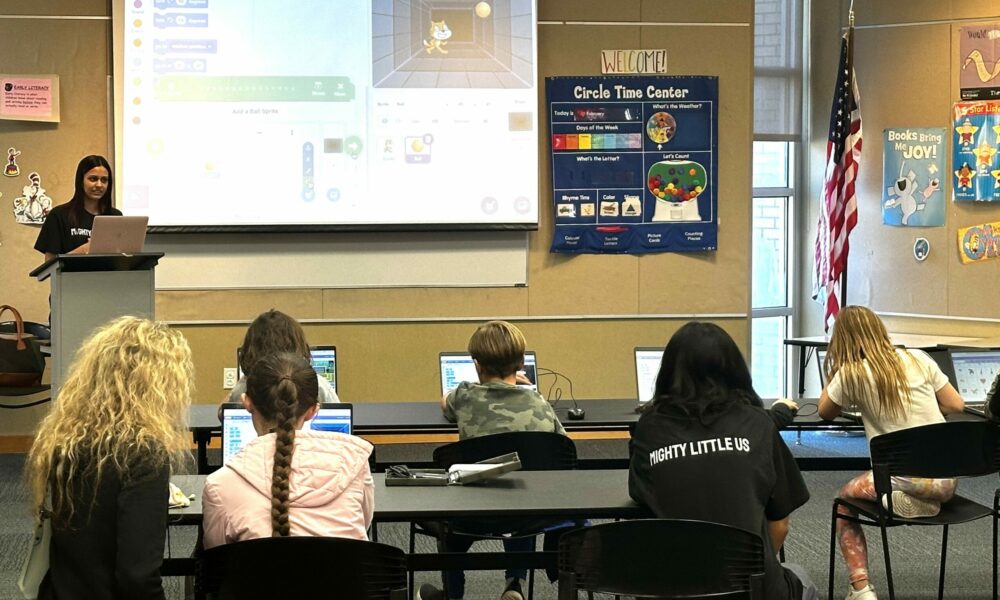

Today we’d like to introduce you to Vanshika Prasad.
Vanshika, we appreciate you taking the time to share your story with us today. Where does your story begin?
I have always been ambitious in doing things in a way that truly reflects who I am. The subtle focus, the undercurrent of consistently putting others in need before myself has been my primary goal. I have always, since middle school, aspired to utilize my evolving skills and strengths to further my fascination in making the future better than the past in actions that can help inspire others to dream more, learn more, do more, and become more, in cultivating empathy and delivering hope to children in particular, around us, who are less fortunate, less privileged, and less resourceful.
Establishing the charity organization “Mighty Little Us,” mightylittleus.org that recently was granted the 501 c 3 status by IRS marked a pivotal moment, enabling me to streamline my charitable efforts, enhance outreach, and forge collaborations with communities in the city of Plano from where I started as a middle schooler and now in the city of Dallas, where I have scaled it as a high schooler. I have always remained dedicated to performing small acts of kindness for others, recognizing that these gestures often hold the most significance in their hearts.
I surely wanted to take a plunge at something challenging enough and the one that gives me immense satisfaction, a volunteer activity that connects young minds, an initiative that directly impacts our very own community left behind, a journey that is unique and blurs boundaries. I started looking for a project that challenges my assumptions.
Being passionate about technology, my first thought, hence, ran the gamut from venturing from developing a program to enhance digital literacy for the less privileged and under-served Dallas local communities, online Coding classes for kids, establishing a community tech hub for kids to access digital resources, creating mobile app to address social issues like mental health and suicide to AI for environmental preservation.
From all her charitable initiatives that I have immersed myself in over the years, from fundraising at Art and Craft fairs, campaign for animal shelters, food drive for food banks to conducting online art classes, the volunteering activity that truly stands out is the inclusion of a new chapter to my community work: Scratch Coding for kids. This activity was themed around ‘Innovation and Technology for social good’ which I named “Scratch Spark,” specially designed and developed for low-income and underrepresented young home-schooled, elementary, and middle school students of Dallas.
In terms of pure organization and operations, I knew right off the bat that this was a huge undertaking and quite challenging for a high-school student. However, just as I have always embraced opportunities in my life, I am always ready to embrace challenges.
The obvious lingering thoughts in my mind were: Can I commit timewise to these weekend classes without compromising with her junior year schoolwork, which is challenging and rigorous at one of the nation’s top academic institutions? Would the format be online or in-person? Who could provide the space and equipment like laptops, projectors etc.? Would Dallas Public Libraries help and permit a student to conduct such an activity? How would I do the promotion to attract children from various less privileged communities? Could I partner with other organizations for the same? And eventually, could this activity even take off or fizzle out?
Selectively applying constraints to keep my thoughts focused on the theme in the Digital Space, I conducted a feasibility study and gap analysis on how digitally aware the kids of Dallas communities are, especially in the low-income, and less privileged neighborhoods. The primary issue in these communities was reliable access to the Internet and personal computers. Hence, anything online was out of the question but I was steadfast in my belief that in this age of apps, video games, digital puzzles, and social media presence, every young person must be allowed to find their spark and blaze their trail as long as they have been provided access to a safe and healthy place with free internet, laptops, accessories, and set-up. Quite simply, data suggested that children are not being given the opportunity to gain experience how to code. Hence offering a Scratch Coding class struck me as a path to go forward because it is considered fun, especially for beginners, children, and those new to programming. Being a visual programming language, it is a fun way to foster creativity by creating interactive stories, games, and animations.
Therefore, offering a free Scratch Coding Class struck me as a meaningful focus idea. Since my little sister and I are self-taught Scratch coders, I recognized its potential for fun and learning among kids. The visual and interactive interface would surely appeal to kids. They can drag and drop colorful blocks to create scripts, which makes coding feel more like playing with puzzles or building blocks. They can design characters, background, and sounds, all these without any prior knowledge of coding or writing actual code. The whole idea of introducing programming in this fashion at an early age can spark creativity, critical thinking, and critical thinking skills, setting a sturdy foundation for future learning and exploration in STEM field, and is precisely what inspired me to pursue this activity.
The fundamental goal of offering free Scratch Coding classes to kids from poor communities who are new to the digital space and technology, in general, was to bridge the digital divide and provide equal opportunities for learning and skill development. With this mind, I hoped to empower as many kids as possible with the basic digital literacy and skills that can open up potential career pathways in technology-related fields in future, helping to break the cycle of poverty and providing them with opportunities for upward mobility.
To accomplish this in the most impactful way, adequate preparations were imperative. First, I researched to understand the general communities of Dallas in terms of literacy rates, single-parent homes, household size, and household income. Then, I looked at all the current beginner-level computer-related classes offered at the public libraries, religious institutions, and charities. The majority of these classes were pretty basic and targeting adults, from how to use computer accessories, practicing typing, social media basics, using the internet, using email, etc. There was nothing related to Coding as such or even an introduction to it. For this endeavor, I selected a list of ten libraries out of thirty from various parts of Dallas, particularly from areas where less privileged neighborhoods existed. I contacted the library managers of these branches to discuss my idea regarding how they could assist her in providing a space, laptops, projector, and some email promotion among their members to support the offering of free coding classes. The initial lackluster and unenthusiastic reactions to my proposal did not surprise me, given that I was a student and had no teaching experience. Eventually, they were convinced of the significant value-add this activity would offer and that a student instructing another student would be appreciated by both kids and their parents. I did have some experience offering free online art classes to kids and took private coding classes earlier and recently had AP computer science in school and became familiar with Java programming.
Additionally, to assess the interest of kids and parents, I created a survey to gather feedback from both kids and parents at the libraries about their interest in Scratch Coding, their familiarity with coding, their willingness to participate in such a class, preferred times, and formats.
From talking to librarians about my project and seeking help, engaging parents at these libraries on how these classes not only provide their children with an opportunity to learn digital skills but also supporting them in developing friendships and learning good values through fun activities like Scratch Coding, and engaging community leaders and print media for promotion was no easy task.
This program, eventually, was not only achieved with remarkable success but also gained city-wide coverage and encouragement. Had it not been for the support and encouragement from the library staff and parents, this weekend program would not have successfully kicked off last summer. Positive experiences from the early participants led to word-of-mouth promotion within the communities, further increasing the popularity of the classes. Kids were encouraged to share their achievements with friends and family, and the effort amplified the program’s outreach and generated excitement among potential new participants. Since the launch last year, from the initial class size of 4-5 students, it grew to an average of ten students per class. The classes exceed their expectations, and the kids always want new scratch games each time. They have also started being creative in their approach to creating stories and animations. So far, I have taught some 200+ students and inspired a few students to pursue Computer Science as a career. I plan to offer these classes in five other libraries in Dallas and a few in Plano starting June.
The major element in this entire journey has been the sense of ACHIEVEMENT for me. This project contributed immensely to my professional growth with several learning points at every step of the way. This experience taught me that perseverance is indispensable, as it enabled me to continue my efforts to make a positive impact on communities, even in the face of daunting challenges and setbacks. The charity organization “Mighty Little Us,” that I founded, takes immense pride in its mission to support and uplift communities and “educating the less privileged and less fortunate young minds.”
I’m sure it wasn’t obstacle-free, but would you say the journey has been fairly smooth so far?
One if the major challenge, besides others mentioned in my story on the previous question, was to strike the right balance between my academic responsibilities as a Junior at the Talented and Gifted School (TAG) with 7 AP classes and my community services. I have also been on the Dallas Arboretum leadership council and have meetings that I attend over the weekends.
The whole Coding Class Project, right from inception to implementation, had basic logistical challenges, from contacting dozens of librarians and staff through email, phone, and face-to-face to planning the curriculum based on the feedback I received as part of the survey I conducted prior to the start of the classes, to creating flyers and posters and doing promotion.
Thanks – so, what else should our readers know about your work and what you’re currently focused on?
To summarize, I am a junior at the School for the Talented and Gifted at Yvonne A. Ewell Townview Center, Dallas Independent School District (DISD), I am a community leader and founder of a 501 (c) (3) non-profit organization “Mighty Little Us”.
With over a thousand hours of community service experience, I have engaged in a diverse array of activities, including fundraising for animal foster and adoption programs, organizing food drives, supporting animal shelters through financial contributions, selling homemade crochet items at local fairs to raise funds, and conducting free coding classes at Dallas libraries for underprivileged kids. Through “Scratch Sparks,“ my passion project, I have introduced over 200 less fortunate and less privileged children to the dynamic world of coding through Scratch, designed to empower them with digital literacy and computational thinking skills. Through engaging and interactive sessions, children learn to create animations, games, and stories. Through my dedication and efforts, I have motivated many young individuals to follow in my footsteps.
I am proud to be the youngest recipient of the “Yellow Rose of Texas “award in Jan 2024, an honorary commission conferred by Gov. Greg Abbott, recognizing me for my contribution to community service and volunteerism.
What sort of changes are you expecting over the next 5-10 years?
I anticipate several significant changes in my career and community activities. In terms of my career, I expect advancements in natural language processing (NLP) and artificial intelligence (AI) to lead to more sophisticated applications across various industries. This could involve enhanced language understanding, more nuanced contextual interpretations, and improved capabilities for generating human-like responses. Winning a runner-up spot at the 2023 Congressional App Challenge with my app on mental health in children “ No Matter What” was certainly a morale booster. The positive feedback and validation I received from the challenge encourages me to continue exploring the world of app development for children.
In the realm of charity activities, I anticipate an increased emphasis on leveraging AI for social good. I plan to start an AI bootcamp for children in the less privileged communities. Overall, I expect the next 5-10 years to be a period of rapid evolution and innovation in both my career and charity activities, driven by advancements in AI technology and a growing recognition of its potential to create positive impact in the world.
Contact Info:
- Website: www.mightylittleus.org
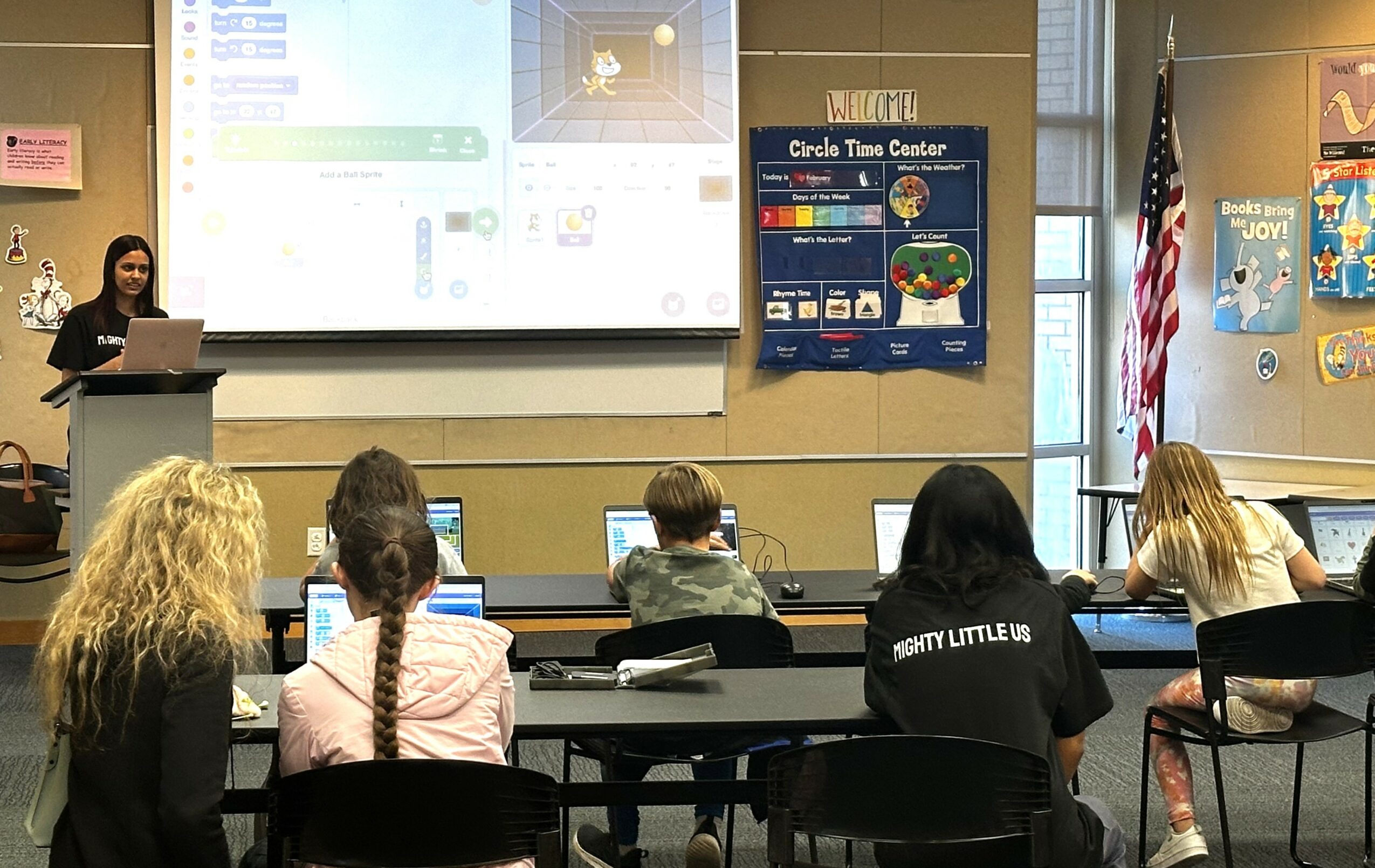
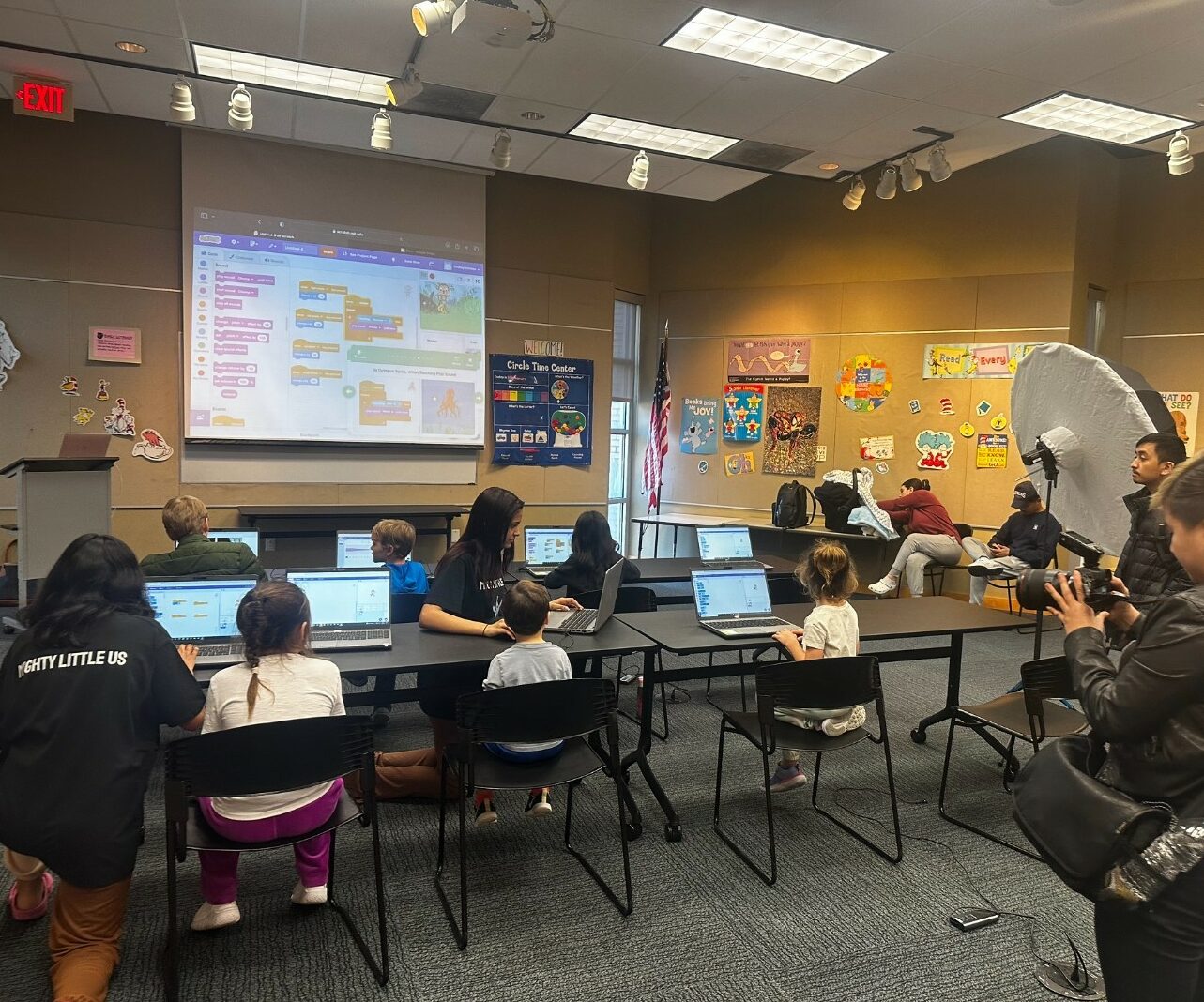
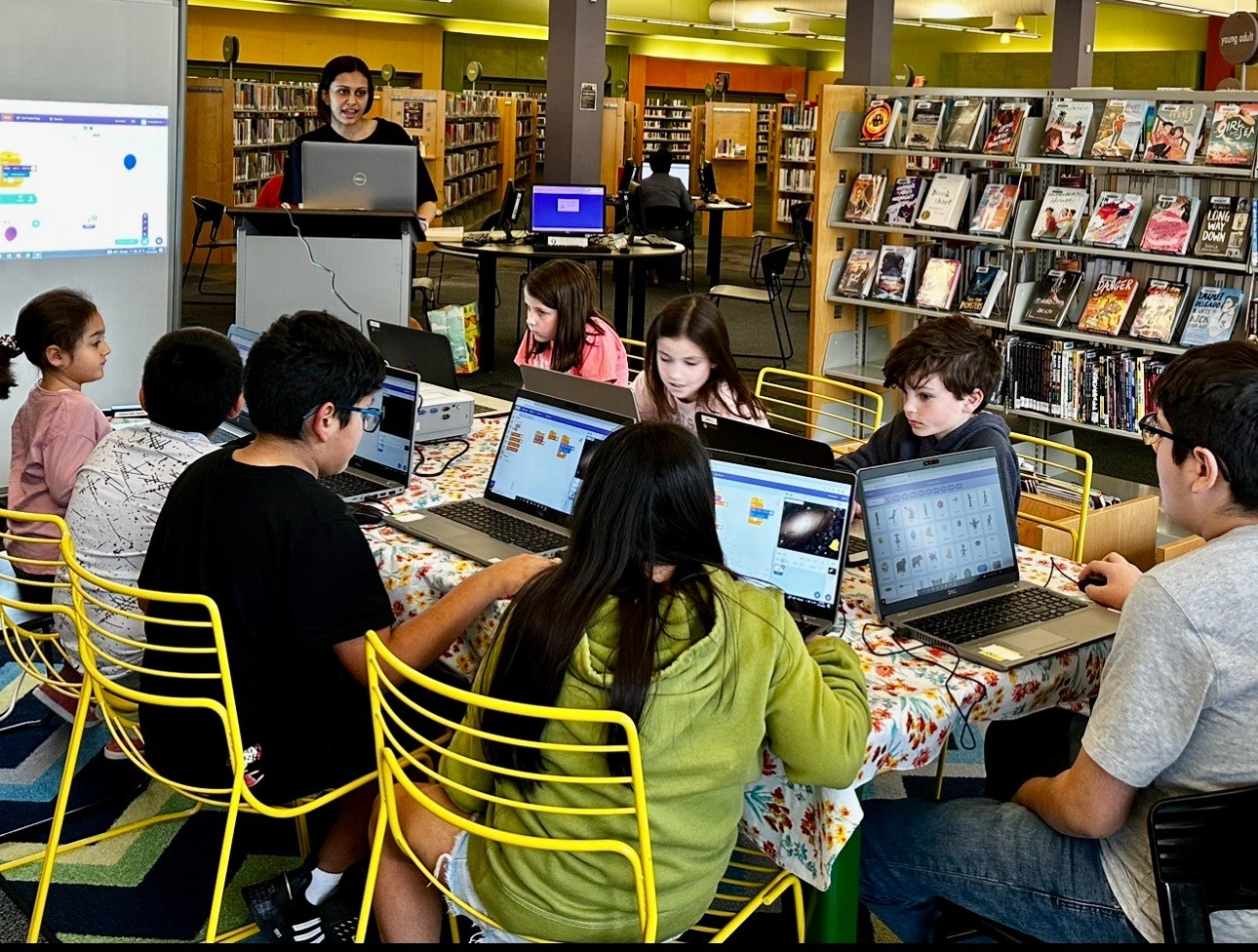
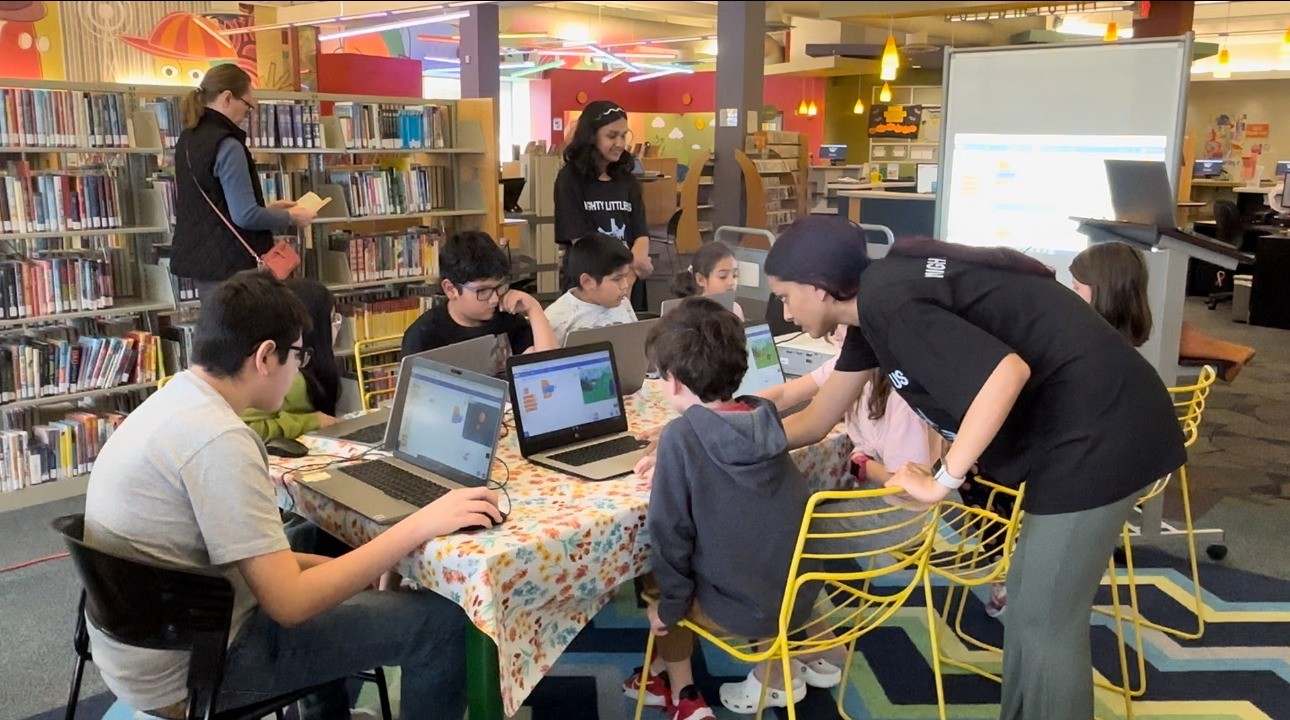
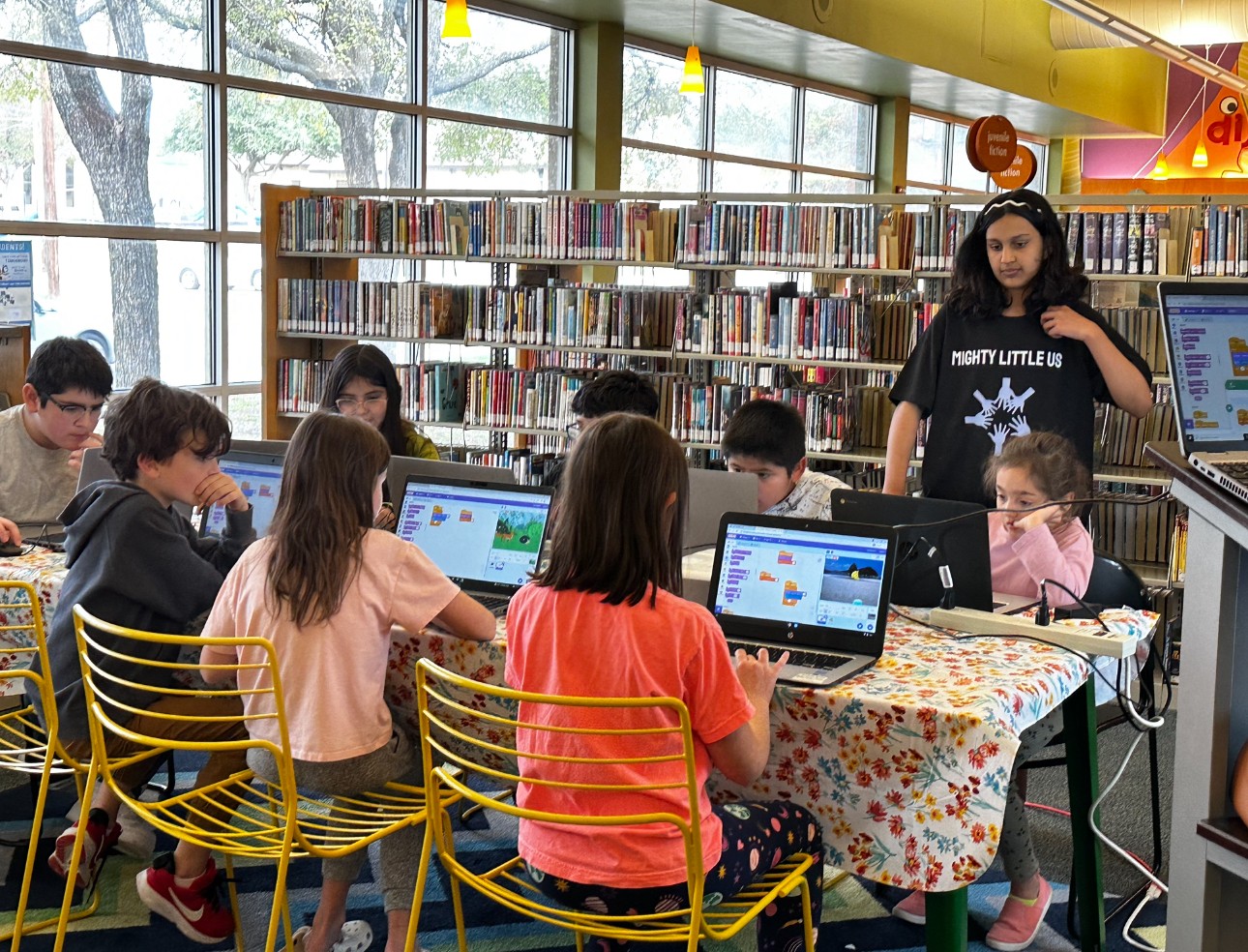
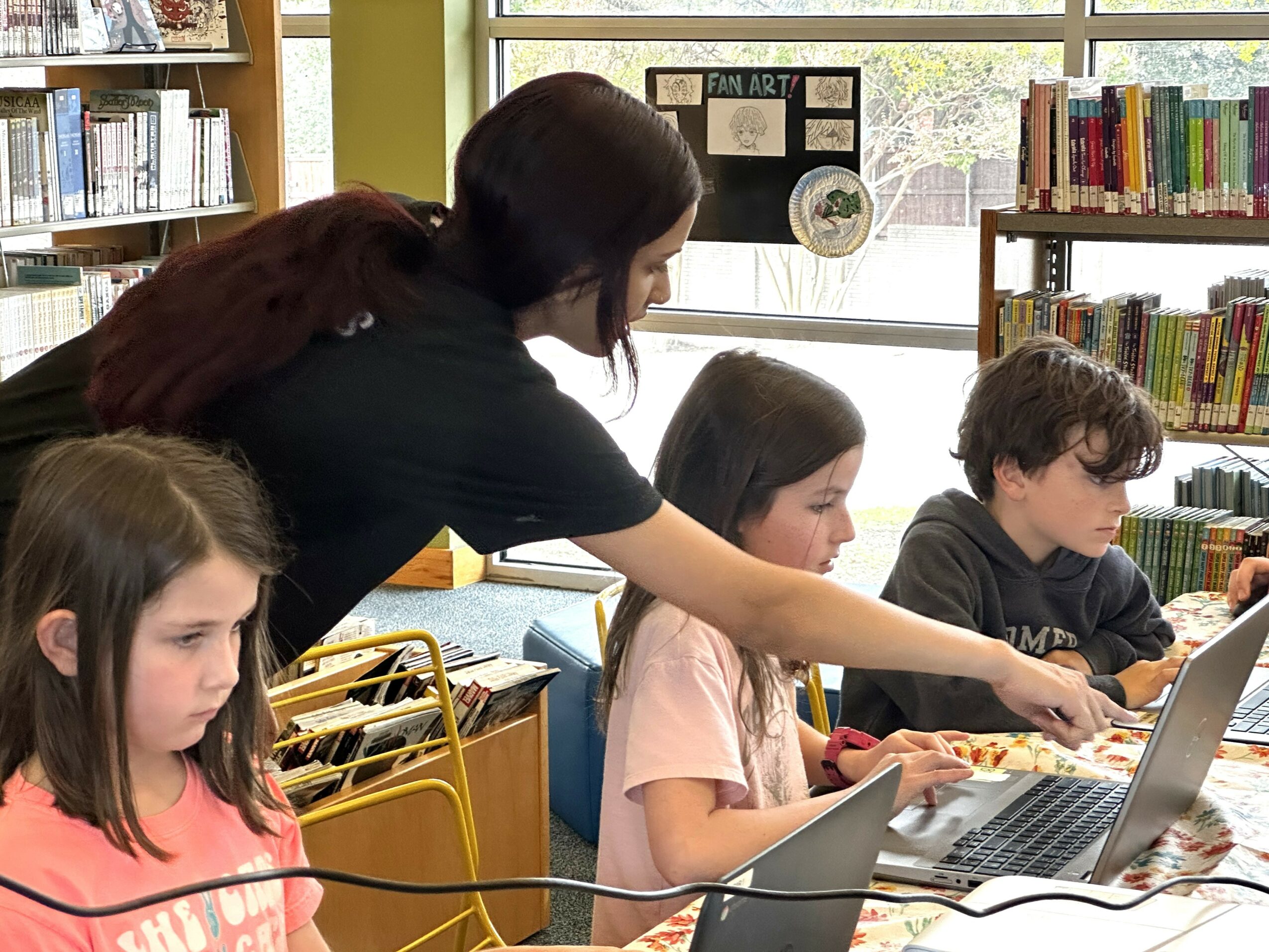
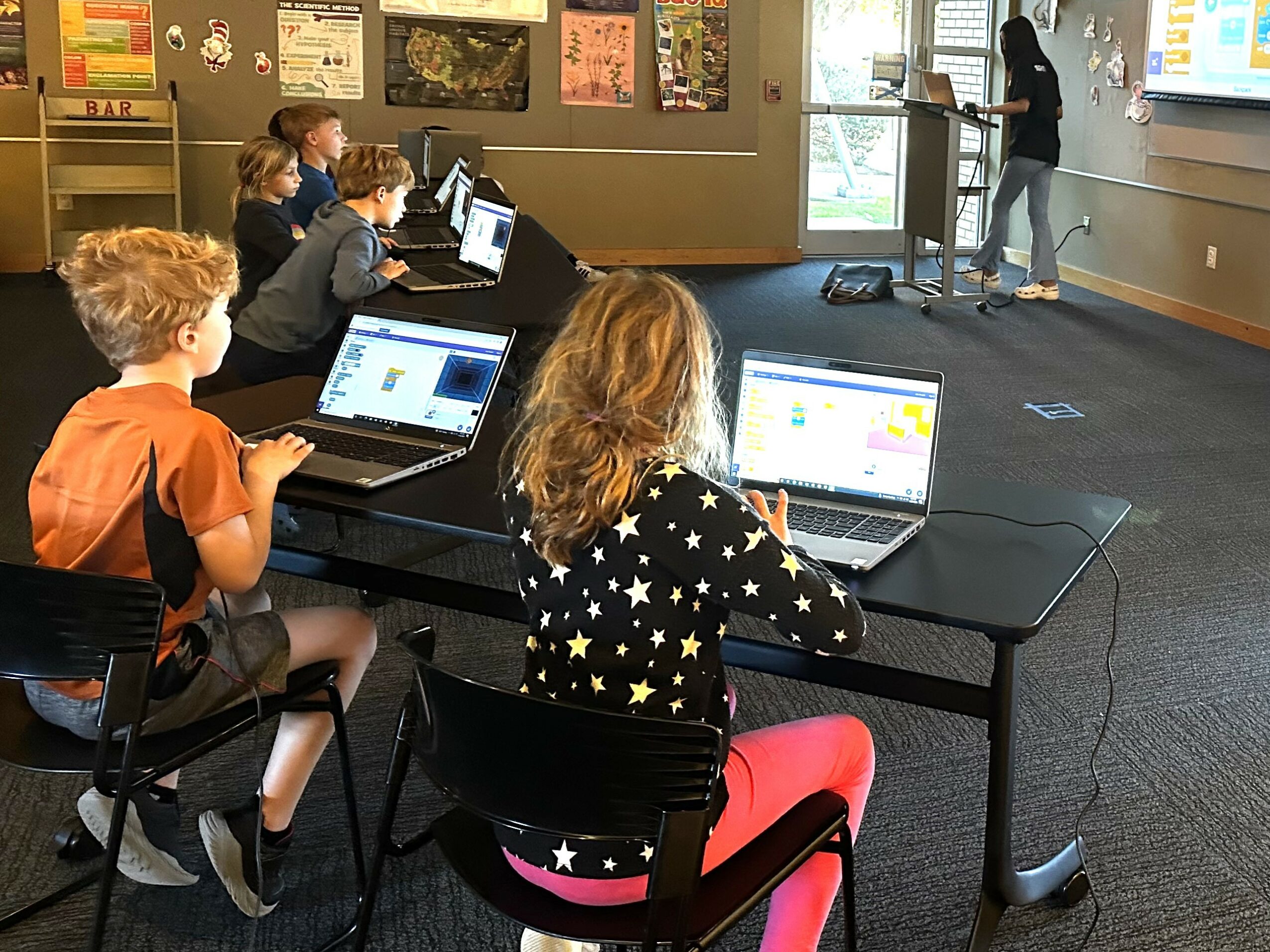
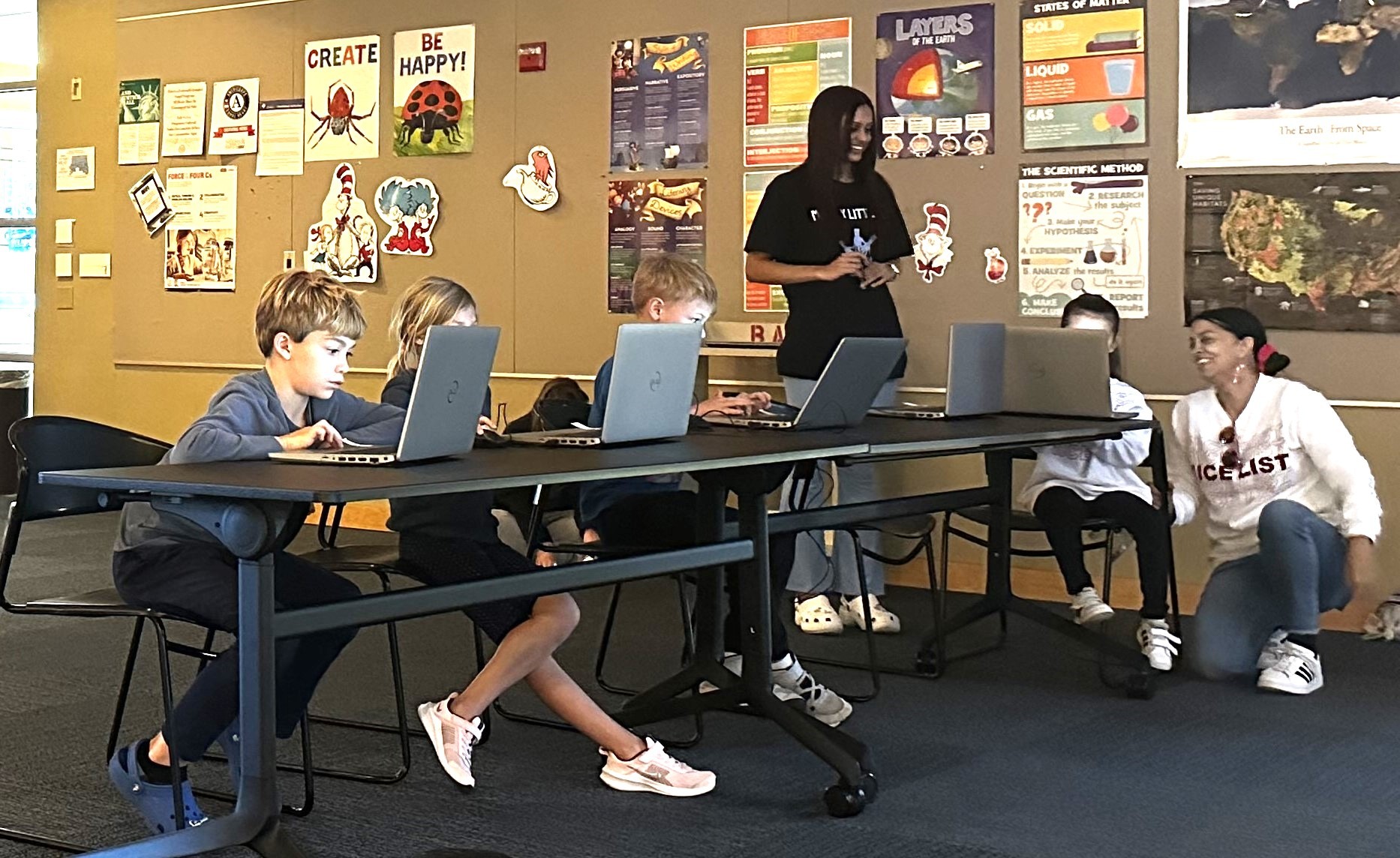
Image Credits
Ravi Prasad

